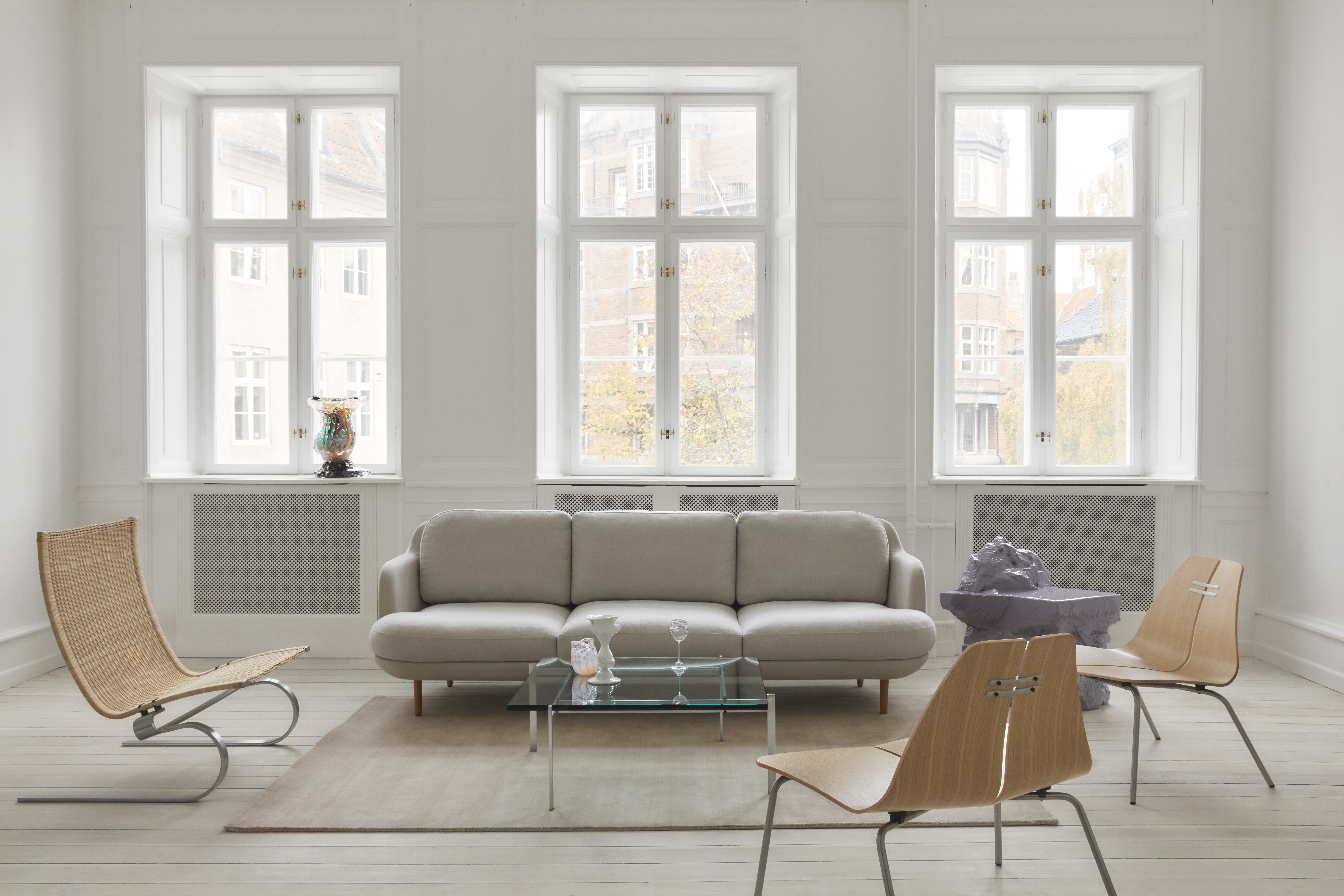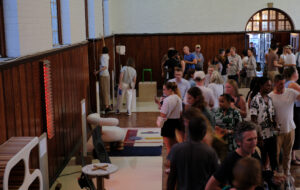
Ross Lovegrove I saw a wonderful interview with the artists Gilbert and George, who became quite wealthy through their success, and they were asked, why do you still live in London? And they said, “Because it’s a real place.
And actually, the sobriety of that definition is a lovely thing. It is a real place. I think when I travel I see it through the way the news is read here. It’s not sensational as it is in the States. Everything in the States is sold to you at some point. And there’s a certain human normality in the way that news and ideas are delivered here. It’s grounded.
This is a place where you can really get on with your job happily and successfully. And because it’s a very expensive city – I think it was just voted 3rd most expensive after Tokyo and Osaka – I say if you can survive here you can survive anywhere, financially. I think there should be recognition for the fact that people stick it out.
To have models made here, the prices are incredible, compared to Milan or Munich. It’s basically not competitive from that point of view. What Konstantin Grcic pays in Munich for his 2,500sq ft premises, plus terrace, in a beautiful industrial building, all beautifully done, with steel doors and security – I pay the same just to have my rubbish taken away each week.
That’s a bit of a gripe. I have to earn, just to stand still, probably 30 per cent more than people in Milan and other cities. And that’s a big effort. And I think people don’t understand that. They may see that as profiteering when actually that’s just basics. You get what you pay for.
I think it’s a truly cosmopolitan, clued-up sparkling dynamic city. Once that gets a hold on you, it’s hard to understand living and working somewhere else.
icon What’s stopping you going to Munich and taking advantage of that cheaper lifestyle?
rl Because Germany’s boring. I lived there for a year and a half. I dug a tunnel and managed to escape. It was like the Great Escape.
icon You lived in Paris too.
rl I found there was no creativity in Paris. Most of the creativity you see there is imported. There are formulas for the way people subscribe to a dress code or to a type of music. French rap is ridiculous.
Somehow, here, there is a natural, infinite search for ideas. Foster is the most successful architect in the world. Also in London you have Zaha, you have people like Grimshaw, you’ve got Chipperfield.
You’ve got Anish Kapoor, who’s probably the greatest living artist. And you’ve got Antony [Gormley] here too, Rachel Whiteread, you’ve got [Tony] Cragg. In the arts you’ve got gravitas. You’ve got a mixture of deep primordial thinkers, then Emin and Hirst, who are perhaps more media orientated.
You’ve got Ron Arad … what I admire about Ron is his permanent experimentation. And what does that cost? That’s a personal investment, which is massive. Same with Marc [Newson] and Thomas [Heatherwick]. People who are using their income and funding to explore, with rigour, their ideas. It’s an intellectual city.
So in London there is an incredible, organic swirl of change. It absorbs things and changes things and out they come in another way. There is a great biodiversity of designers here. We live side by side and have mutual respect for each other but there is no organisation. There is no singular, successful way of thinking.
icon A lot of people have said there is no other city that has the creative diversity that London has. Would you agree with that?
rl First of all, those statements are always made by Londoners. Unfortunately there is always this competition that goes on worldwide to say that one city is more significant and creative than the other. It depends what we’re looking for; what mood we’re in. I go to Tokyo every month and Tokyo is incredible. The architecture and design thinking that comes out of Japan is sensational, from Shigeru Ban, Toyo Ito, Kazuyo Sejima. That lightness, that use of materials, is particular to Japan. There’s a certain perfection, which is very different. It’s an Eastern way.
icon There’s a definite look to much of the work coming out of Tokyo today but London’s output is incoherent – there doesn’t seem to be a unifying style or approach.
rl That’s great though. The thing is, I don’t think there’s a lot of plagiarism here. Where as in other societies there is this constant rolling up of ideas. In London I think the creatives stand their ground. They establish beliefs, then they stick with it.
I can’t say I use London very much in the right way because it’s impossible to get around. Last week I was in Istanbul, the week before I was in Milan and Tokyo. I can’t afford to come back here and spend three hours driving across London being gassed in the process. That tends to degenerate the idea of using a city, which is rather sad. I don’t have any input from old London.
icon That’s a good point. We could be anywhere. There is nothing about your studio that speaks of London.
rl No. I don’t want to sound pretentious but I live and work internationally and that’s what gives me my buzz. But I think if your going to be grounded somewhere, London has a natural, universal, cosmopolitan air which you can’t fault. You can take it as you wish. You get people passing through here, which is really lovely. There’s a kind of open door policy. You get all sorts of people in London. And that will go on. It’s not a trend.
















